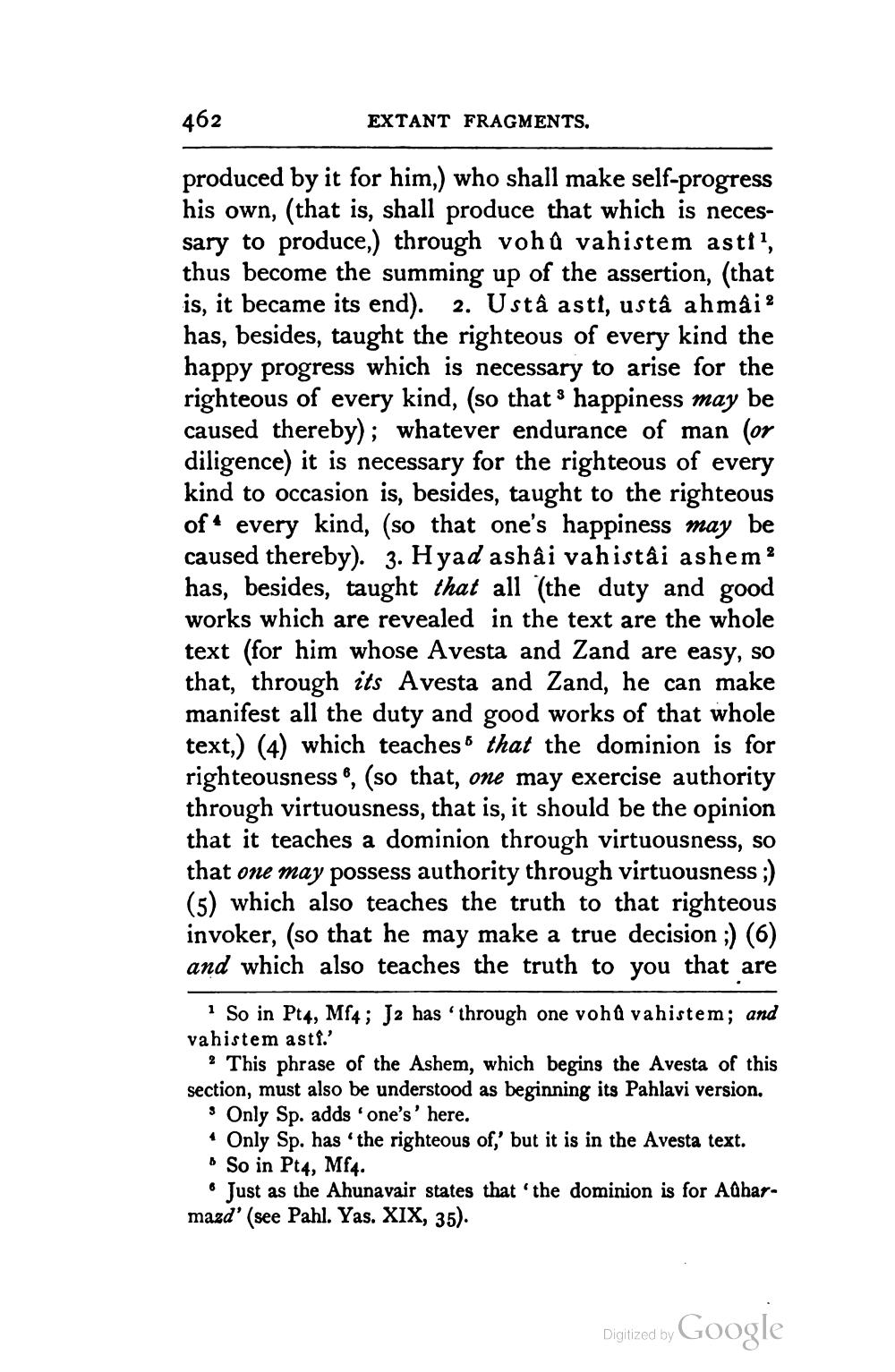________________
462
EXTANT FRAGMENTS.
produced by it for him,) who shall make self-progress his own, (that is, shall produce that which is necessary to produce,) through voh û vahistem astf", thus become the summing up of the assertion, (that is, it became its end). 2. Ustà asti, ustâ ahmâi? has, besides, taught the righteous of every kind the happy progress which is necessary to arise for the righteous of every kind, (so that s happiness may be caused thereby); whatever endurance of man (or diligence) it is necessary for the righteous of every kind to occasion is, besides, taught to the righteous of every kind, (so that one's happiness may be caused thereby). 3. Hyad ashậi vahistâi ashem ? has, besides, taught that all (the duty and good works which are revealed in the text are the whole text (for him whose Avesta and Zand are easy, so that, through its Avesta and Zand, he can make manifest all the duty and good works of that whole text) (4) which teaches that the dominion is for righteousness , (so that, one may exercise authority through virtuousness, that is, it should be the opinion that it teaches a dominion through virtuousness, so that one may possess authority through virtuousness ;) (5) which also teaches the truth to that righteous invoker, (so that he may make a true decision ;) (6) and which also teaches the truth to you that are
So in Pt4, Mf4; J2 has through one voh vahistem; and vahistem asti.'
? This phrase of the Ashem, which begins the Avesta of this section, must also be understood as beginning its Pahlavi version,
* Only Sp. adds 'one's' here. * Only Sp. has the righteous of, but it is in the Avesta text. • So in Pt4, Mf4.
& Just as the Ahunavair states that the dominion is for Adhar. mazd' (see Pahl. Yas. XIX, 35).
Digitized by Google




